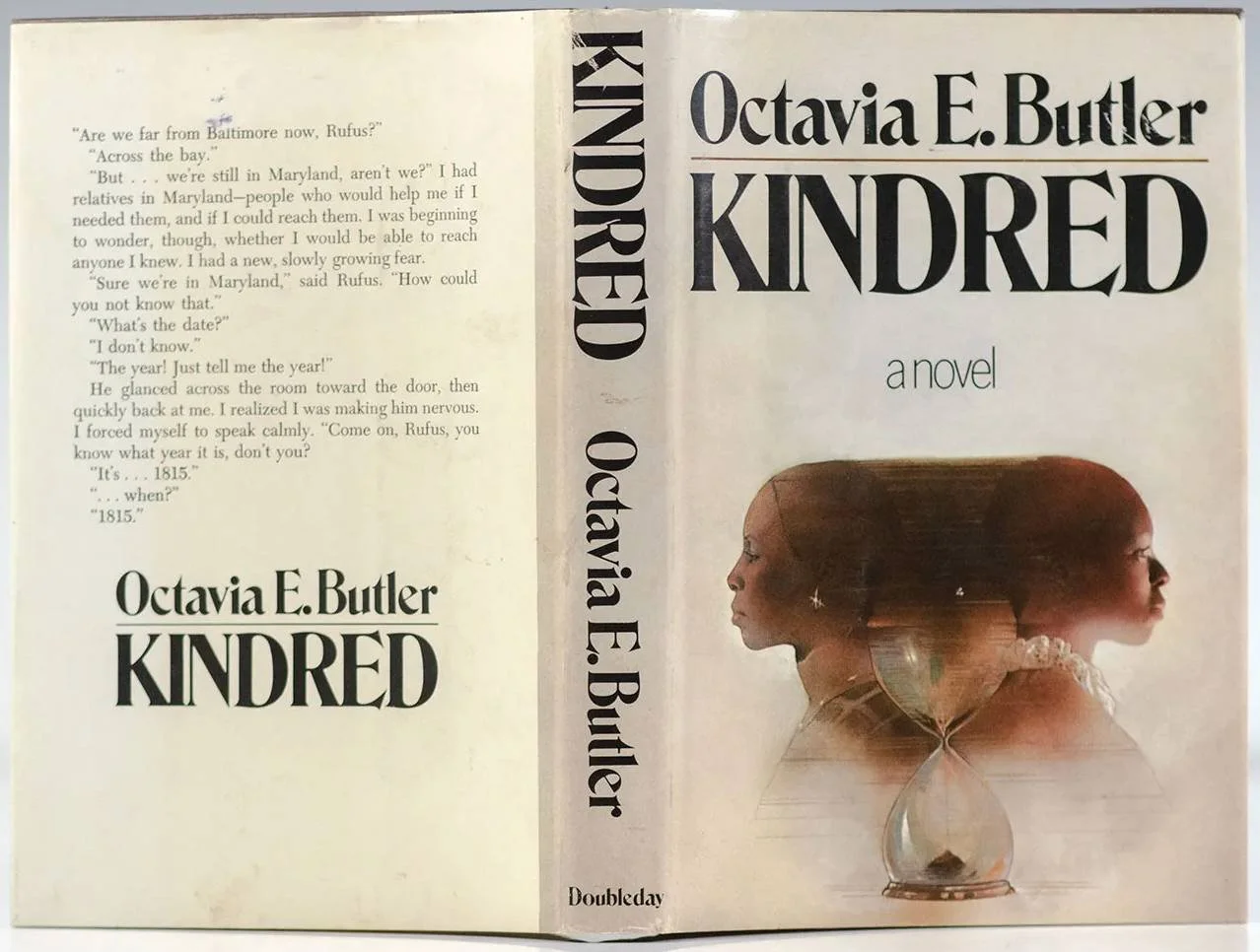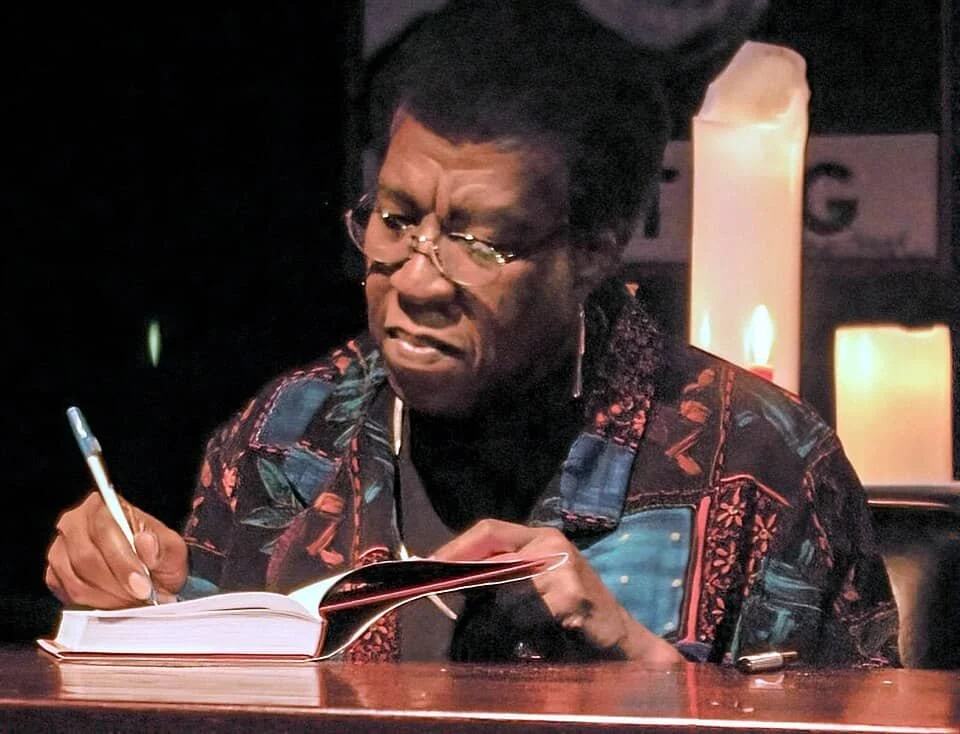Jun 5th 1-2-3: Octavia E Butler - “Feeling History”
I have been doing a lot of reading this past week. I revisited a book I started earlier in the year and once I got back to it, I couldn’t put it down.
This book is Kindred by Octavia E Butler.
The novel is a fantasy/sci fi historical fiction set in the antebellum South. The main protagonist, Dana, is a black woman from 1976 Los Angeles who is transported back to a 19th century Maryland plantation. Here, she realizes that the owner’s son is her white ancestor. To secure her own existence, she must make sure he lives.
The novel is a powerful, deeply profound story about the complexities of slavery, interracial relationships, and the psychological impacts of oppression that ripple from back through history.
This got me thinking, what would inform such a unique and impactful story? Here is the story behind the story.
1: Feeling History ( 5 minute read )
Justin is free from mind control. He has decided that if the female commander from Mars, Nyah, is to leave earth satisfactorily, she will need a male to accompany her so that an Earthman can assist with replacing the declining male population of her world.
The flying saucer takes off, and this is when Justin gains his opportunity to atone for the death of his wife. He follows the plan the astrophysicist, Professor Hennessy, gave him and destroys the ship’s atomic power source, saving all the men of Earth! Drinks are had at the bar, and then the movie ends.
A 12-year old Octavia E Butler walked out B-movie sci fi thriller, Devil Girl From Mars, and she was inspired. It was at that moment where she thought to herself,
“I can write a better story than that.”
This would begin a lifelong passion for the genre as a whole.
Octavia was raised by her mother and grandmother since her father’s early death. She had been surrounded by stories of racial injustice and resilience. See her grandmother, Estella, had been a slave in Louisiana, and was forced to work in the cane fields. This was known to be especially hard physical labor. Her mother, Octavia Margaret Guy, had worked as a housemaid for white families.
As her mother worked as a domestic servant, she would bring home any discarded books and magazines so that Octavia could read. Despite having dyslexia, Octavia mirrored the discipline and fortitude of her mother and grandmother and pushed on with reading and writing.
Having social and financial limitations was not a barrier for her. She was always encouraged by her mother and grandmother to study and further her education. This developed a strong sense of self-discipline and reading habits that would inform her entire life.
Even though Pasadena in the 1950’s and 60’s was more integrated than the Deep South, it was still racially stratified. On occasion, Octavia’s mother would take her to work with her. This was when she would see the differences still present even after all of these years.
“She took me to work with her sometimes, and I saw how she was treated—like a nonperson.” — Octavia Butler on her mother working as a maid (Interview with The New York Times, 2000)
She would attend racially mixed schools throughout her childhood, but often would feel isolated and underestimated by not only her peers but also her teachers. Octavia was a daydreamer, so she would often imagine worlds as a way to escape the loneliness and social awkwardness she felt when playing with other children.
Whenever she got a chance, she would read from magazines like Amazing Stories and books from Isaac Asimov, Theodore Sturgeon, and Zenna Henderson. Science fiction and fantasy would ignite her creativity and feed her soul. She would graduate from Washington High School in Los Angeles, and then attend Pasadena City College.
Even as a teenager, she would work low-wage jobs to support herself and her mother. Whether it was a potato-chip inspector, dishwasher, telemarketer, and even a warehouse worker, Octavia’s self-direction and discipline enabled her to save money to take writing classes. One of these, would prove especially pivotal, as this is where she would meet her future mentor, Harlan Ellison.
One day while at college, she heard a young Black activist from the Black Power movement express contempt for older generations of African Americans for, what he perceived as subservience, during the time of slavery.
This incident was profound, and impactful to Octavia. This was the seed for the idea that would become Kindred.
“I set out to make people feel history.”
Octavia E Butler graduated from Pasadena City College in 1968, and began extensively researching in order to authentically depict the antebellum South. She would travel to Maryland’s Eastern Shore including Talbot County, and visit historical sites like Mount Vernon.
She frequently utilized resources at Enoch Pratt Free Library in Baltimore and the Maryland Historical Society, reading up on historical books and slave narratives. Among these, was Frederick Douglass’s autobiography. Between the stories from her grandmother, the recounting from her mother, and all of the research she was conducting, she understood what it felt like to live and experience the lives of enslaved people.
Octavia initially wrote Kindred to have a male lead, but then decided to change it to a female lead in order to explore gender dynamics and survival strategies during slavery. She wrote and wrote and in June of 1979, Kindred was published by Doubleday.
The novel blended some of her favorite elements of science fiction and fantasy along with historical fiction, most notably her inclusion of time travel in order to explore and experience slavery’s legacy.
The book was a success, and was praised. It not only had an innovative narrative structure, but it was utterly unflinching in its’ portrayal of slavery. The book’s exploration of slavery, interracial relationships and the psychological impacts of oppression forced readers to come face to face with the brutal, uncomfortable realities of America’s sordid past.
The book has since become a staple in high school and college curricula, and continues to be recognized for its impact on literature as well as discussions about race and history.
I can say that for myself, it was a deeply reflective and engrossing reading experience. I believe it is of the utmost importance to never forget the history, for as the adage goes, forgetting history is dooming ourselves to repeat it.
I cannot recommend Kindred enough, for both science fiction and fantasy readers but readers of all kinds. I won’t ever forget reading this and plan to read it again in the future, as it has already cemented itself as one of the most provocative works of historical fiction and one I desire to never forget in its intricacies and details.
2: Creative Prompts From Us (ex. Write a short story, a poem, a song, or draw a quick illustration of these! Let your imagination run free.)
I. What stories do you have from your own life?
II. How about the stories from your family history?
3: Inspirational Quotes From Octavia E Butler
I. "Kindred is a clean version of slavery.”
II. "Frankly, it never occurred to me that I needed someone who looked like me to show me the way.”
III. "Sometimes I wrote things because I couldn't say them, couldn't sort out my feelings about them, couldn't keep them bottled inside me.”
Thank you so much for reading!

